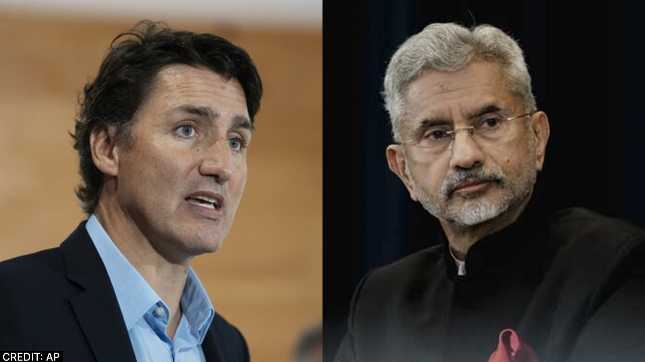
India calls for parity in diplomatic presence in the face of Canada’s allegations. | Picture: P.A.
In a sharp rebuttal, the Foreign Ministry rejected the idea that India had violated the Vienna Convention on Diplomatic Relations, a claim made by the Canadian government on Thursday. The whole debacle began after Canadian Foreign Minister Mélanie Joly confirmed that Ottawa was following New Delhi’s order and expelling 41 Canadian diplomats from India. The confirmation of the departure follows two weeks of negotiations between India and Canada after New Delhi demanded “parity” in the number of diplomats present in the two countries.
In a statement released on Friday, the Ministry of Foreign Affairs slammed the Trudeau administration and insisted that India’s action was fully in line with Article 11.1 of the Vienna Convention on Diplomatic Relations. “We saw the statement from the Government of Canada on October 19 regarding the Canadian diplomatic presence in India. The state of our bilateral relations, the much higher number of Canadian diplomats in India and their continued interference in our internal affairs warrant parity in mutual diplomatic presence in New Delhi and Ottawa,” the ministry said on Friday. “We have collaborated with the Canadian side on this subject over the past month to develop the details and modalities of its implementation. Our actions in implementing this parity are fully consistent with Article 11.1 of the Vienna Convention on Diplomatic Relations. We reject any attempt to present the implementation of parity as a violation of international standards,” the statement said.

Citing the aforementioned article, the ministry vehemently rejected Joly’s claims when she announced the diplomats’ withdrawal. Ties between the two nations deteriorated after Canadian Prime Minister Justin Trudeau claimed that Indian agents working with the Canadian government were involved in the assassination of pro-Khalistani terrorist Hardeep Singh Nijjar. New Delhi vehemently denied the allegations and called Trudeau’s statements “absurd.”
What did Joly say?
At a press briefing Thursday, Canada’s foreign minister said the revocation of diplomatic immunity for Canadian officials and their families raises security concerns. “The safety of Canadians and our diplomats is always my primary concern, given the implications of India’s actions on the safety of our diplomats,” Joly told reporters in Ottawa, Global News reported. She insisted Canada would not retaliate, adding that doing so would be against international law. “There is no reason under international law that would justify withdrawing a country’s diplomatic immunity in this manner overnight, and that includes the Vienna Convention,” Joly said. “That’s why I say this sets a precedent,” she added.

What is the Vienna Convention?
According to the United Nations, the Vienna Convention on Diplomatic Relations provides a comprehensive framework for the establishment, maintenance and termination of diplomatic relations on the basis of consent between independent sovereign states. It specifies the functions of diplomatic missions, formal rules governing appointments, declarations of persona non grata by a diplomat who has in some way offended, and precedence among mission heads. The article of the convention in question was article 11.1 of the convention.

“In the absence of specific agreement as to the scale of the mission, the receiving State may require that the size of the mission be maintained within limits which it considers reasonable and normal, taking into account the circumstances and conditions prevailing in the receiving State and the needs of the particular mission”, the article reads. In Friday’s statement, the Indian Foreign Ministry justified its actions by citing this very article. The ministry then urged the Canadian government not to consider its intention to ensure parity a violation of international law.


